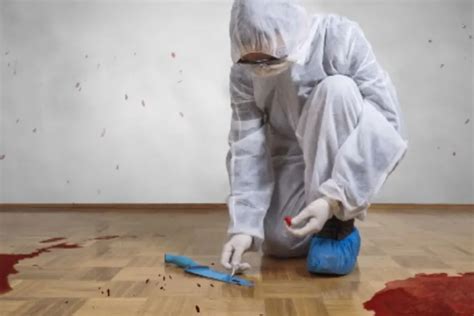Are you considering a career as a crime scene cleaner? This field, also known as biohazard remediation or forensic cleaning, involves the safe and thorough removal of hazardous materials, such as blood, bodily fluids, and other contaminants, from crime scenes and other traumatic incidents. It's a crucial role that requires a unique combination of skills, training, and personal qualities. In this article, we'll explore the job application and requirements for becoming a crime scene cleaner.
Understanding the Role of a Crime Scene Cleaner
Crime scene cleaners are responsible for restoring properties to a safe and sanitary condition after a traumatic event, such as a homicide, suicide, or accident. They must be able to handle the physical and emotional demands of the job, which can include working with hazardous materials, handling sensitive situations, and interacting with law enforcement officials, families, and other stakeholders.
Job Requirements
To become a crime scene cleaner, you'll need to meet the following requirements:
- Age and Education: You must be at least 18 years old and have a high school diploma or equivalent. A degree in a related field, such as biology, chemistry, or environmental science, may be beneficial.
- Training and Certification: You'll need to complete a training program in biohazard remediation or a related field, which typically includes coursework in hazardous materials handling, personal protective equipment (PPE), and OSHA regulations. Many employers require certification from a reputable organization, such as the American Bio-Recovery Association (ABRA) or the International Association of Bio-Recovery and Trauma Scene Cleanup (IABRTSC).
- Physical and Mental Health: You must be physically fit and able to lift, carry, and maneuver heavy equipment and materials. You'll also need to be mentally prepared to handle the emotional demands of the job, which can include working with traumatic and disturbing situations.
- Background Check: You'll need to undergo a thorough background check, as you'll have access to sensitive information and work in secure environments.
- Communication and Interpersonal Skills: You'll need to have excellent communication and interpersonal skills, as you'll work with law enforcement officials, families, and other stakeholders.
Application Process
To apply for a crime scene cleaner position, you'll typically need to follow these steps:
- Research and Find Job Openings: Search for job openings in your area, either through online job boards or by contacting local biohazard remediation companies directly.
- Update Your Resume and Cover Letter: Ensure your resume and cover letter are tailored to the specific job opening and highlight your relevant skills, training, and experience.
- Apply for the Job: Submit your application, which may include a resume, cover letter, and any required certifications or training documentation.
- Interview Process: Participate in an interview with the employer, which may include a written exam, a practical test, or a face-to-face interview.
Tips for a Successful Application
To increase your chances of a successful application, consider the following tips:
- Gain Relevant Experience: Try to gain experience in a related field, such as working in a laboratory or hospital setting, or volunteering with a biohazard remediation company.
- Develop Your Skills: Develop your skills in areas such as hazardous materials handling, PPE, and OSHA regulations.
- Build Your Network: Network with professionals in the field and build relationships with local biohazard remediation companies.
- Stay Up-to-Date with Industry Developments: Stay current with industry developments, regulations, and best practices.

Gallery of Crime Scene Cleaner Job Application and Requirements





Frequently Asked Questions
What is the salary range for a crime scene cleaner?
+The salary range for a crime scene cleaner can vary depending on factors such as location, employer, and level of experience. On average, a crime scene cleaner can earn between $40,000 and $60,000 per year.
What kind of training and certification do I need to become a crime scene cleaner?
+You'll need to complete a training program in biohazard remediation or a related field, which typically includes coursework in hazardous materials handling, personal protective equipment (PPE), and OSHA regulations. Many employers require certification from a reputable organization, such as the American Bio-Recovery Association (ABRA) or the International Association of Bio-Recovery and Trauma Scene Cleanup (IABRTSC).
What kind of physical and mental demands can I expect as a crime scene cleaner?
+You can expect to work in a fast-paced, high-stress environment that requires physical stamina and mental toughness. You'll need to be able to handle hazardous materials, work in confined spaces, and interact with families and law enforcement officials in sensitive situations.
Conclusion
Becoming a crime scene cleaner requires a unique combination of skills, training, and personal qualities. By understanding the job requirements, application process, and industry developments, you can increase your chances of a successful application. Remember to stay up-to-date with industry developments, build your network, and develop your skills to succeed in this challenging and rewarding field.
